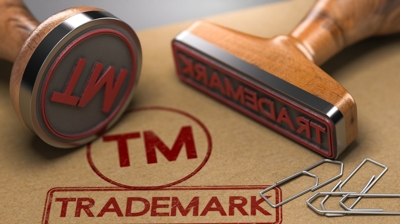
Seattle Breach of Contract Lawyer
What Qualifies as a Breach of Contract?
Contracts form the basis of nearly every business relationship, whether they are with your employees, third-party vendors, or customers. Disputes often arise when one party fails to perform as promised as outlined in a contract. When that happens, you may have to sue to enforce your rights, or you may have to defend yourself if you are accused of breach of contract.
Some forms of breach of contract that are viable:
- Injunctions
- Equitable relief
- Liquidated damages
- Consequential damages
- Compensatory damages
If someone has breached their legal obligation to pay you a sum of money that is critical to the success of your business, you will need legal advice from a seasoned and experienced lawyer. The same is true if you are facing a lawsuit for breach of contract. The attorney you select should be an experienced litigation attorney, because your dispute may need to be resolved in a civil district court (or superior court) under contract law. At NWBizLaw, we are highly experienced in this area of the law and have had significant successes in breach of contract cases, as well as related claims arising under tort law.
Call our breach of contract attorney in Seattle at (206) 565-0090 today. We look forward to discussing your matter with you.
What Are the Elements of a Valid Contract?
Before determining whether you have (or are facing) a viable claim for breach of contract, we will first inquire whether your contract was legally binding under applicable contract law.
The essential elements for the formation of a contract vary by jurisdiction. Under Washington law, a valid and binding contract involves all of the following elements:
- Competent, mutually assenting parties;
- Legal subject matters;
- A proper, unrevoked, and accepted offer; and
- Valuable and sufficient consideration as required by the law.
§ 2:2.Elements of contract—Overview, 25 Wash. Prac., Contract Law And Practice § 2:2 (3d ed.).
Even when all of the elements of a contract exist on paper, there may be defects in formation that render an agreement invalid and keep the agreement from becoming a binding contract. For example, certain contracts must be reduced to writing under the statute of frauds, or else they are invalid and not enforceable. Contract law will also not apply to enforce illegal subject matter, such as an agreement made in violation of public policy or in defiance of applicable rules of professional conduct.
Even if the contract is not legally binding, however, the inquiry might still be valid through other avenues, rather than under contract law. For example, enforceable claims may exist under parallel or complementary theories of tort law. Alternatively, promissory estoppel laws may recognize a party’s obligations through a quasi-contract in certain circumstances. Equitable estoppels also focus on holding parties accountable for inconsistencies or false claims that contradict past conduct or allegations.
Our experienced lawyer understands how and when all such obligations at law may arise and will know how and when to best present all related claims and/or defenses.
Is the Breach of Contract a Material Breach?
If the contract is binding, the subsequent breach is only actionable under the law if it is a material breach. According to Washington law, a material breach “substantially defeats the purpose of the contract.” It is so significant that it excuses the other party’s actions and warrants termination of the entire contract. It may also justify the injured/aggrieved party’s pursuit of damages, so long as they can demonstrate that they would have performed their contractual duties if not for the breach.
§ 10:1.Overview—Material breach, 25 Wash. Prac., Contract Law And Practice § 10:1 ; 3d ed.
According to the Restatement (2nd) of Contracts, the following factors are relevant to a court’s determination of whether a material breach exists:
- How the injured party may be deprived of benefits they expected through the contract
- Whether the injured party can be reasonably compensated for this loss
- Whether the offending party will suffer forfeiture
- The likelihood of the offending party to correct their failures
- Whether the offending party has acted in good faith and used fair dealing practices
DC Farms, LLC v. Conagra Foods Lamb Weston, Inc., 179 Wash. App. 205, 317 P.3d 543 (Div. 3 2014).
Even if a party has materially breached a binding agreement, they may still have a defense against enforcement (including waiver, estoppel, impossibility, impracticability, and mistake). Whether you are claiming another party has breached your contract, or you are facing such claims yourself, our attorney at NWBizLaw will use his extensive knowledge of contract law, material breach, and tort liability to protect your rights and advance your best interests.
Get started on your case with a consultation. Call our breach of contract attorney in Seattle at (206) 565-0090 today.

-
 Understanding the Basics of Intellectual Property
Understanding the Basics of Intellectual Property -
 Understanding Workplace Harassment: Types and Implications
Understanding Workplace Harassment: Types and Implications -
 Protecting Your Brand in the Summer Sun: Intellectual Property Strategies for Seasonal Businesses
Protecting Your Brand in the Summer Sun: Intellectual Property Strategies for Seasonal Businesses -
 Why Register Your Trademark?
Why Register Your Trademark? -
 What Are the Key Elements of a Successful Business Contract, and How Can a Business Lawyer Assist?
What Are the Key Elements of a Successful Business Contract, and How Can a Business Lawyer Assist? -
Breach of Contract in Washington: Common Pitfalls and How to Avoid Them
-
 Navigating Mergers and Acquisitions: The Essential Role of a Business Lawyer
Navigating Mergers and Acquisitions: The Essential Role of a Business Lawyer -
 Strategies for Effective Defense Against Discrimination Claims
Strategies for Effective Defense Against Discrimination Claims
"The time Eric spent with me saved me thousands of dollars!"The time Eric spent with me saved me thousands of dollars in legal fees and saved my business. Thank you Eric and Northwest Business Law!
- Charlie Muhlenkamp



-
Our Firm
-
Meet Your Attorney
-
Video Center


Why Northwest Business Law LLC Stands Out
-
Won Millions for Clients
-
Customized, Strategically Intelligent Approach
-
15+ Years of Legal Experience
-
Tailored Solutions for Each Client

.2409131318349.jpg)




.2309061512550.jpg)